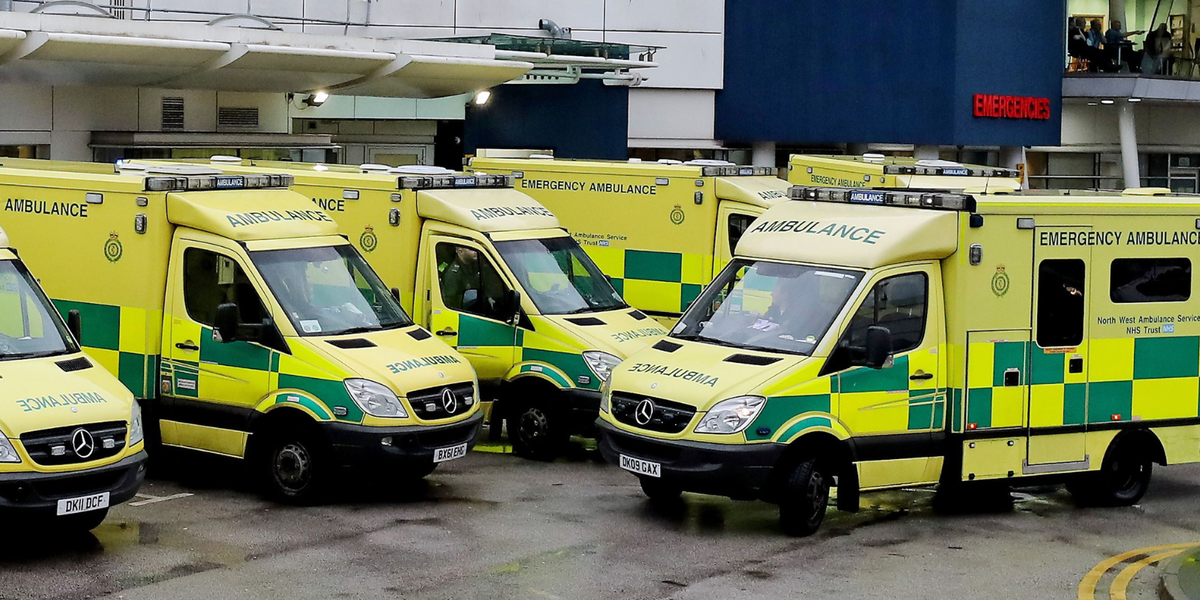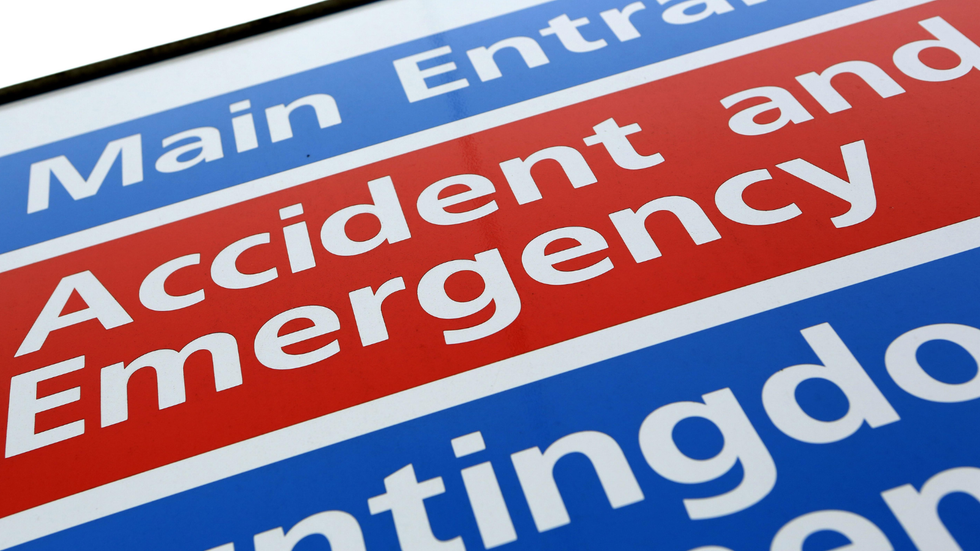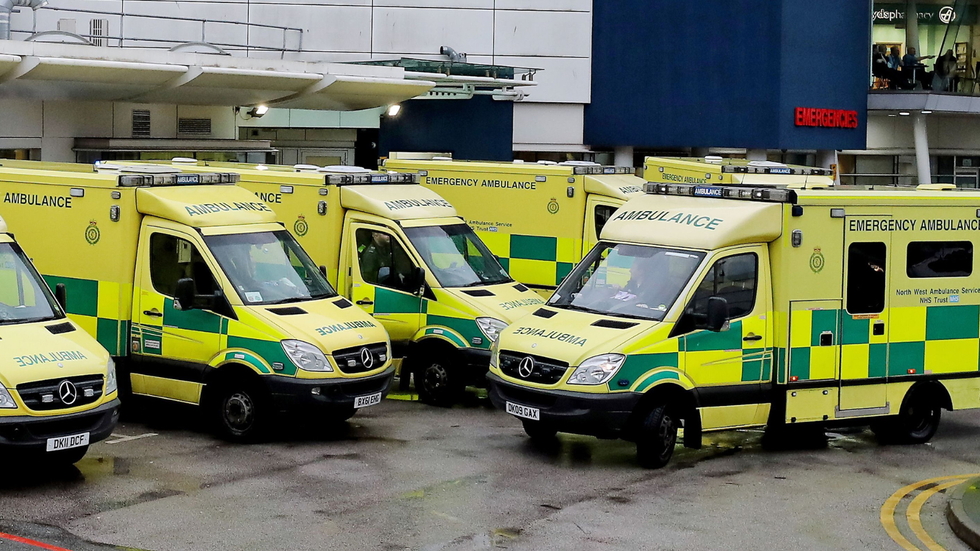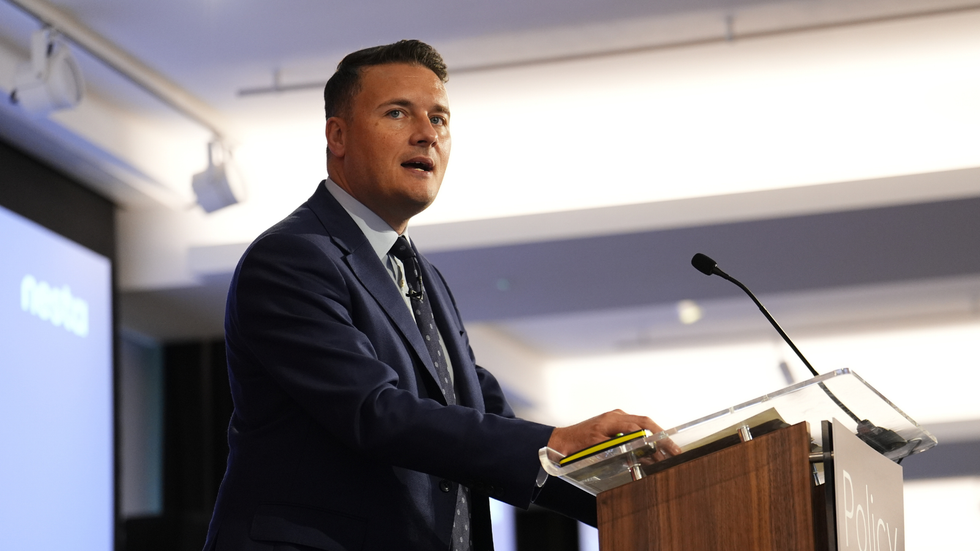



The NHS is planning to run "war game" exercises to ensure it is ready as winter looms, according to officials.
Winter is known for being a difficult time for the NHS as rising levels of Covid, flu and other respiratory illnesses drive up patient numbers.
In recent years, winters have seen reports of long waiting times at A&E, ambulances queuing outside hospitals, and an increase in corridor car as beds become full.
According to officials, "another pressured winter" is expected, with figures predicting 2025 to be the busiest on record for A&Es and ambulance services.

In recent years, waiting times at A&E have increased throughout winter
|PA
Throughout September, the health service has announced it is increasing its attempts to become prepared for winter.
NHS England said the robustness of local leaders' plans will be tested with scenario exercises including staffing shortages, multiple virus outbreaks and a sharp rise in demand.
Local health teams are also set to take action on delayed discharges.
Such situations are when someone is well enough to be sent home but does not have an appropriate care plan in place, meaning "discharge capacity can surge at times of peak demand".

Increased pressure on health services, including ambulances, is expected
|PA
Health Secretary Wes Streeting said: "Winter is always tough for the NHS, but this year we're ramping up preparations and doing more to protect the country.
"From 'war games' exercises to extra checks for the most vulnerable, we're making sure the health service is ready for whatever comes its way.
"But the public has a crucial role too. The single best way you can prevent yourself, your family, and the NHS is by getting vaccinated.
"It takes pressure off hardworking staff and helps ensure care is there for patients when they need it most."
New vaccination campaigns will be put in place to try to encourage people to take up offers of jabs for things like the fly, and to try to prevent them from getting ill in the first place.

Wes Streeting has called on people to ensure they are getting vaccinated
|PA
Sir Jim Mackey, Chief Executive of NHS England, said: "Despite record demand this year NHS teams have worked hard to improve waiting times, with last month's Category 2 ambulance response times the fastest for four years - but we know the coming colder months will be much more challenging.
"The NHS has done more preparation to be ready for the winter months than ever before, because we know the last few winters have been particularly tough for patients and staff, and we are determined for this year to be better."
However, leading emergency care doctors have called for the results of these stress tests to be published "before it is too late".
Dr Ian Higginson, President of the Royal College of Emergency Medicine, said: "It will be interesting to see what these planned tests actually are, what they will measure, and what they will evidence that we don't know already, but most importantly whether they will actually improve anything.
"The results of the tests must be published, so their effectiveness and impact can be determined and any winter plans amended accordingly before it is too late.
"We and our members are deeply concerned about the overall state of the urgent and emergency care as we head into what is looking likely to be another tricky winter.
"We must see a thorough, evidence-based and data-driven plan for the coming months which translates to improvements in our departments and for our patients.
"Without action, not just paper exercises, ill and vulnerable people will continue to be stuck on trolleys in corridors, with all the awful consequences that result."
